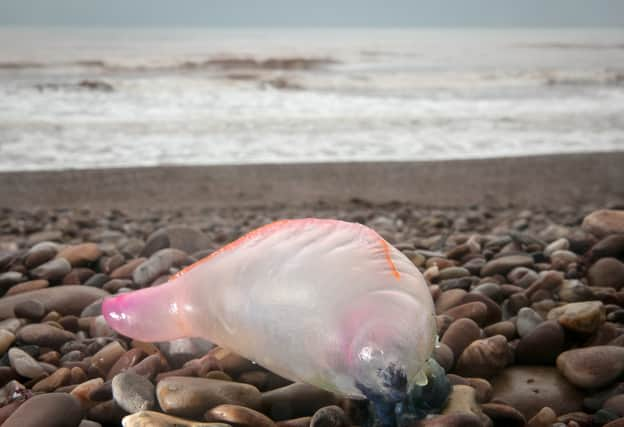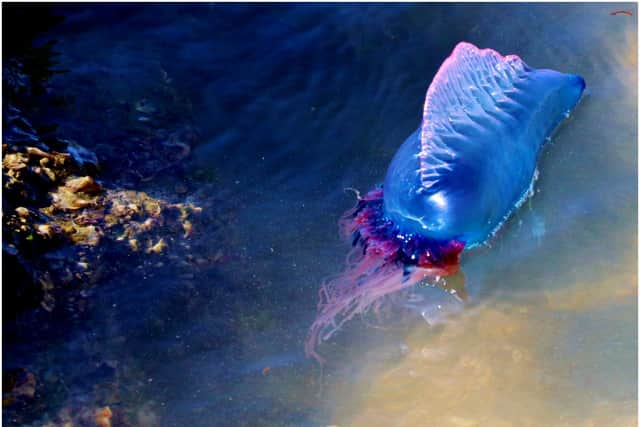Portuguese Man O’War: warning as deadly creatures reach Merseyside beaches


The Royal National Lifeboat Institution (RNLI) are warning people visiting the Merseyside coastline to be on alert after a deadly Portugese Man O’War was found on a Wirral beach.
The ‘Floating Terror’ most likely drifted up the Irish Sea and along the North West coastline due to the recent stormy weather.
Advertisement
Hide AdAdvertisement
Hide AdWest Kirby RNLI posted the warning on Monday morning after finding one of the creatures, also known as blue bottle jellyfish, on Caldy Beach.
“If you see one, DO NOT TOUCH, They give a nasty sting, even when dead,” they tweeted.
Man O War were also spotted as far up the coast as Ainsdale beach in Southport over the weekend.
Increased sightings of deadly Man O’War
There were sightings of the deadly seas creatures last month too after a similar spell of stormy weather. On that occasion the Man O War washed up as far north as Walney Island in Cumbria.
Advertisement
Hide AdAdvertisement
Hide AdSenior Marine Conservation Officer for North West Living Seas, Dr Emily Baxter said: “As the number and distribution of sightings has increased since early September we could see more washing up in the North West, so keep an eye out next time you are out on the shore.”
She told Cheshire Wildlife Trust: “Although they are beautiful and fascinating, it is important to ensure children and dogs are kept away from any stranded Portuguese Man O’War as they can still sting even when dead.”
About Portuguese Man O’War
The creatures live on the surface of the ocean and are found mainly in tropical and subtropical waters.
The beautiful stinging creatures can’t swim and are at the mercy of the winds, which is why they often end up washed ashore after big storms.
Advertisement
Hide AdAdvertisement
Hide AdWhile they look pretty, and are usually around 30 ft long, the Portuguese Man O’War tentacles can sometimes grow up to 160ft.
Their long tentacles help them take down their prey which is usually bigger than them.


In some cases, sightings of this jellyfish can cause beaches to close to avoid any incidents caused by these fearsome creatures.
They mainly survive on crustaceans and small fish which might suggest they are harmless. However, if stung by one a human can experience severe pain and sometimes, in rare cases, end in fatality.
Advertisement
Hide AdAdvertisement
Hide AdThe jellyfish’s venom can strike lymph nodes causing shock, fevers and can hinder a person’s breathing.
Jellyfish that wash up on beaches are usually dead, however, caution is still seriously advised as their tentacles still have the ability to sting.
